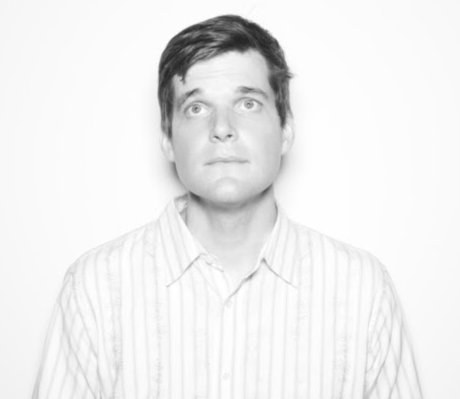Though they spent the later half of the ’00s as one of the archetypical examples of, as it were, “the Brooklyn Scene,” the members of the National all originally hail from Cincinnati, Ohio, and have always carried themselves as Midwestern underdogs, relative to their buzzier peers. As such, one might wonder if they would have had a sense that discontent was brewing in the Rust Belt last year, and that perhaps they wouldn’t be shocked when their home state would prove to be one of the key land grabs that Donald Trump would flip to achieve Electoral College victory.
But for guitarist and songwriter Bryce Dessner, that did not turn out to be the case. A few days before the election, his band played a get-out-the vote election rally in their hometown. “I remember the director for Ohio was there. They didn’t seem worried, and neither did we,” he says while calling from France during a break from work.
On election day, he voted early and then drove to his home studio in Woodstock for a session with his friend, the songwriter Sufjan Stevens. Such was his confidence that all was well that “I didn’t even check my e-mail or check returns until 10:30 at night. I remember just saying, ‘What?’ I was so sure. We were really, really blown away. I mean, just completely devastated.”
Frontman Matt Berninger would spend the next few months using Stevens’ album Carrie & Lowell and copious cannabis-based self-medication to avoid “staring at the ceiling with tears in my eyes” every night, he says.
There were other coping mechanisms as well, which brings us to “Turtleneck,” one of the highlights of their upcoming album Sleep Well Beast and perhaps the closest this inherently ornate band has ever come to hardcore punk, or as Bryce says “an angry, raw song that just felt good to play after the election.” The music for the song had been around for a bit, but wasn’t under serious consideration for the album until Berninger finished the lyrics (which excoriate “another man in shitty suits that everybody’s cheering for”) right after the election. It marked a turning point during the making of Beast, and one that reaffirmed what Bryce calls their new guiding ethos. “Let’s make the record what it wants to be, and not worry so much.”
For a long time, worrying was the National’s business, and business was good. They released their eponymous debut in 2001, followed by the 2003 album Sad Songs for Dirty Lovers, both of which captured a talented outfit struggling to find themselves. (Suffice it to say, there was a brief period when this most urbane of bands could be considered alt-country.) Though they got favorable reviews, the National struggled to gain traction during the early ’00s New York rock boom. In Lizzy Goodman’s recent recount of the era Meet Me In The Bathroom: Rebirth and Rock and Roll in New York City 2001-2011, Berninger notes both that he felt Strokes frontman Julian Casablancas could have stolen his girlfriend at any time and that he once had to walk past Interpol doing a magazine cover shoot to get to his rehearsal space.
But with their 2005 album Alligator, the National signed with the respected independent label Beggars Banquet and finally coalesced into themselves, a group of anxious but empathic sophisticates making symphonic odes to free-floating insecurity, with a healthy dollop of cathartic outbursts to keep things from getting too fussy. Alligator was followed by 2007’s Boxer, one of the most acclaimed albums of the ’00s. The well-received High Violet and Trouble Will Find Me followed at three-year intervals. After the lengthy tour for Trouble ended, the members took a break to pursue solo projects and reassess.
“I hear the progression in all those records, but I do feel that once we made Trouble Will Find Me, we all kind of felt like we have to shake it up somehow and maybe throw out the playbook,” says guitarist-songwriter Aaron Dessner.
Both of the Dessner brothers have plenty of outside interests (Aaron has produced albums for Local Natives, Sharon Van Etten and Frightened Rabbit, while Bryce is an in-demand composer who also contributed to the score for The Revenant), and in recent years both have left the city they were closely associated with. “I don’t want to criticize Brooklyn, because parts of it never change,” says Bryce, who now lives in Paris and also has a house in Woodstock. “It was becoming harder and harder to find space to work.” His brother Aaron moved to the Hudson Valley to build his studio Long Pond; after several earlier writing and recording sessions, the National got to work in earnest the day after the studio was finished last year.
After making chunks of the previous National albums in his tiny garage studio where the band “couldn’t really play together,” he wanted a place where they could work without worrying about deadlines or the price of studio time, and could follow their whims down the rabbit hole. “There was definitely talk of how we wanted it to be more fun to make,” says Aaron.
Even in the halcyon days when the band members all lived on the same street, they tended to email each other demos back and forth rather than get together in a room to hash out ideas, but “we actually spend more time together now working then we did before, ironically,” says Bryce. Beast has plenty of moments where the members (which include another pair of brothers, drummer Bryan Devendorf and bassist Scott Devendorf) all recorded together live in the studio, as opposed to their previous approach of individually adding layers and endlessly tweaking arrangements. The results are immediately grabbing missives ”Walk It Back” and ”Day I Die,” which are striking coming from an act whose dense albums are often referred to as ”growers.”
Though Aaron is quick to point out that there are many moments on Beast “which are composed or labored over,” it took a while for his band to get comfortable with ”spontaneous and random accidents. I think over the years we’ve maybe realized that it’s better to leave a lot of things in rather than clean them up.” The meticulous Dessner brothers learned to ease up and embrace things like unruly guitar solos (before they favored elegant, inter-connected swells) after organizing and producing last year’s Grateful Dead tribute album Day of the Dead and backing up the Dead’s Bob Weir on tour.
“We just realized that it’s a breath of fresh air to allow there to be space in our music for things to happen,” Aaron says. “I was drinking some beer and decided to rip a guitar solo, and everyone was kind of like, ‘That’s kind of good. Let’s keep it.’”
In addition to the more straightforward moments, Beast also finds the group embracing seething keyboards, skronky noise and dynamic electronic programming on “The System Only Dreams in Total Darkness” and “Guilty Party,” and even ballads such as “Dark Side of the Gym” sway with an ease that feels hard won and refreshing.
The National have always managed to stand just outside whatever the dominant trend is at the moment, winning fans tour by tour, album by album. They’ve previously scrapped material that they thought might have had commercial potential because they grew bored with it, and unlike many of their peers (Arcade Fire, Vampire Weekend, LCD Soundsystem), they’re still on an independent label—and happily so.
So even they were surprised when Beast’s lead single’s “The System Only Dreams in Total Darkness,” recently reached the No. 1 on Billboard’s Adult Alternative Songs. That’s nice and all, but not why they decided to change things up.
“The reason we’re all making these songs together is that we’re all chasing these weird sensations. We’re not chasing chart positions,” Berninger says, before adding, “I’m not pretending that we don’t pay attention and care about that stuff. Well, care and pursue are two different terms. We pursue that stuff, but we don’t honestly care.”
For previous albums, Berninger would write lyrics and melodies to ideas presented by one of the Dessners, keeping multiple notebooks of lyrics with a colored Post-It note system indicating which iteration of a song he’s working on. Around the time of Trouble, though, he scrapped that approach in favor of keeping a rapidly updating Word document of ideas and jumping back and forth between multiple GarageBand files.
“The process is: don’t edit yourself for a year or two, and throw ideas at lots of stuff, and then go back and start digging in and crafting. I’ve been following the organic way my brain wants to do stuff; just a laptop and fluidity,” he says. “When it’s scribbled in a notebook somewhere, and you have to put in a yellow Post-It note and not a Blue Post-It note because you need to remember it’s this song and not this song, you start to get pissed off at the ideas.”
Since they met, around the time of Alligator, Berninger has been collaborating with his wife Carin Besser, a poet and a former editor for The New Yorker. He jokingly says the band calls her “Yoko Ono,” but he compared her to Tom Waits’ wife and editor Kathleen Brennan. ”One day we might go through and figure out which lines are hers and which lines are mine. 90% are mine, but she’s got 50% of the best ones,” he says. “The record is about my marriage, and there are break-up songs, but I’ve written so many songs that don’t align perfectly with reality. She doesn’t let me get away with writing about anything that’s not about anything. As long as I write about it well, I can write anything I want to.”
Though he felt “struck by lightning” about the election results, Berninger says in retrospect it seems obvious. In 1991 when he was attending Miami University, he attended a rally protesting a “free speech” walk by the Klu Klux Klan in Oxford, Ohio. “The Republican party has been inviting white supremacy out of the shadows for a long time, because they need the votes,” he says. “It’s crazy how the only people who haven’t left Trump are the evangelicals and the fucking Nazis. Because, I’m sorry, the Republican party has been whistling to them for 40 years. Donald Trump is what they’ve made.”
Boxer was one of the defining portraits of Bush-era malaise and free-floating terror. And although Beast has “Turtleneck” and a handful of other moments of political commentary, it’s not the response to Trump’s America that some fans might be expecting. The National recorded approximately 15 other song sketches for Beast, many of which feature the band playing together in punk-inspired fashion as a visceral reaction to the, er, national mood leading up to election.
“The funny thing is, when Trump won everything changed: the awareness of who we are as a nation, I think, suddenly shifted. A light went on for a lot of people. ‘Oh, we are in bad shape. The soul of our country is very ill,’” Berninger says. “We had no idea how ill we are. In a lot of ways, I felt the record needed to get more sensitive.”
Those outraged songs were put aside as the band gravitated towards more meditative ones. “We had to turn the dial in a different direction,” Berninger says. “I felt there was a need to go inward and go into more of a dreamlike state, and process it from a weird, emotionally internal place first, before I can package an idea of what the fuck is happening. I can’t do that yet.”
Maybe next time. Aaron Dessner says the band is interested in possibly finishing and releasing those songs when Berninger is ready.
“So maybe next time we’ll have some answers,” he says with a weary laugh. “Probably not. Jesus, I don’t know.”





